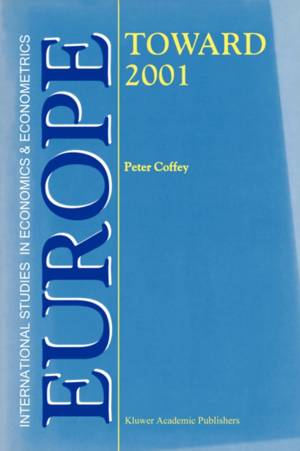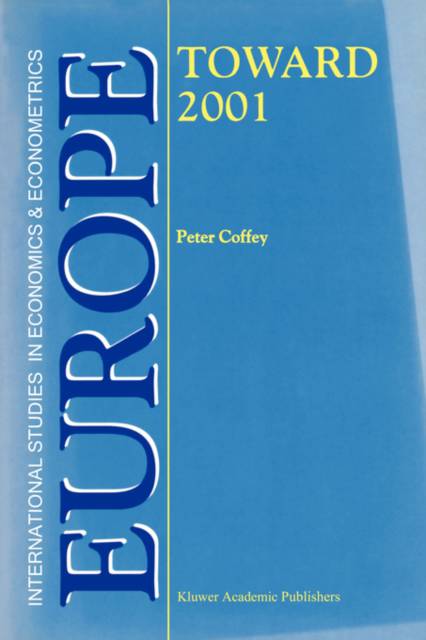
- Afhalen na 1 uur in een winkel met voorraad
- Gratis thuislevering in België vanaf € 30
- Ruim aanbod met 7 miljoen producten
- Afhalen na 1 uur in een winkel met voorraad
- Gratis thuislevering in België vanaf € 30
- Ruim aanbod met 7 miljoen producten
Zoeken
Omschrijving
THEBACKGROUND Why a book on Europe - Toward the Year 200l? There are two principal reasons why a European should embark upon such a hazardous enterprise. First, when the Treaty on European Union (popularly known as the Maastricht Treaty, and, hereafter referred to as the Treaty in this introduction) was signed in February 1992, it was agreed that the heads of government of the EU Member States would assemble, in 1996, to examine its workings. This meeting will be known as the Intergovernmental Conference (IGC). Second, by the end of the century, it is certain that arrangements will have been made for the admission of some countries of Central and Eastern Europe into the European Union (EU). Consequently, even with or without the holding of the IGC, it will be urgently necessary to reform some of the Community's policies - notably the Common Agricultural Policy (CAP) and the structural poliCies which are linked, for example, 2 Europe - Toward 2001 with the Regional and Social Funds - before these countries become members. Failure to do this could result in bankruptcy for the EU. Of almost equal importance is the reform of the institutions and the actual workings of the Community. Already with 12 Member States, it was difficult enough to manage things on a daily basis. Now, as more countries join the Union, things could literally grind to a stop. Thus, changes in this area are indispensable.
Specificaties
Betrokkenen
- Auteur(s):
- Uitgeverij:
Inhoud
- Aantal bladzijden:
- 380
- Taal:
- Engels
- Reeks:
- Reeksnummer:
- nr. 35
Eigenschappen
- Productcode (EAN):
- 9780792338925
- Verschijningsdatum:
- 30/09/1996
- Uitvoering:
- Hardcover
- Formaat:
- Ongenaaid / garenloos gebonden
- Afmetingen:
- 156 mm x 234 mm
- Gewicht:
- 553 g

Alleen bij Standaard Boekhandel
+ 428 punten op je klantenkaart van Standaard Boekhandel
Beoordelingen
We publiceren alleen reviews die voldoen aan de voorwaarden voor reviews. Bekijk onze voorwaarden voor reviews.











